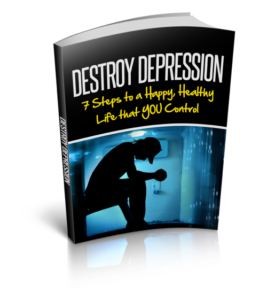Many people go through life convinced that every thought they have about themselves and others is an absolute truth. Now for those who are generally positive, have good self-esteem and see the world as a friendly and beautiful place, keep doing what you are doing. It is obviously working for you. However, for many this is not the case. Many people go through life doubting themselves, doubting their abilities and viewing the world and other people in a negative fashion. What is most interesting about these differing views is that we all live in the same world. Of course, it could be argued that not everyone is born into the same circumstances. This is true, but if money or fame were the key to a happy life then why do celebrities and sports stars suffer similar levels of depression and anxiety as the general population.
I have written previously about how thoughts greatly influence our emotions and subsequently our behaviours. I mentioned how the meaning we attach to different circumstances in life can affect how we feel. So, I will pose the question again. How do we know whether our thoughts are true? Barring any intellectual disability or an acquired brain injury we all have the same ability to think. Therefore, it is our thoughts that determine how we feel and in turn how we behave. It has been said that often we cannot control the first thought that comes into our head, but we certainly can control the next ones. It can be helpful to examine those thoughts and apply this simple rule. Does the thought I am having help or hinder. Given that I cannot be sure what is the absolute truth then why not chose a thought that is more helpful.
If you can open yourself to the possibility that not every thought you have is true, then then you have an opportunity to challenge and change your thoughts into something that serves you better. I remember a period in my life when nothing seemed to be working out and I had people tell me it was my fault. A wise person told me “you can’t always be wrong”. Even a broken clock is right twice a day. That got me thinking and challenging about how I was believing what I was thinking. It caused an immediate shift in my beliefs and my emotions. This in turn changed my behaviour and ultimately my circumstances at the time.
So, if you are open to the possibility that not everything you think is true you have the option to choose thoughts that are empowering, comforting and helpful. This is particularly relevant when you don’t know what someone else is thinking or why a situation is not working out the way you would like. All of life is lived between the ears. Nothing outside of us can change the way we feel unless we allow it to do so. It sounds simplistic but often it is the simple things that work the best. A complex problem does not necessarily require a complex solution.
Finally, one of the best analogies I have heard about how thoughts and feelings work and how changing them can change our lives is as follows. Think of life as a mirror. A mirror is just reflecting to us how we are feeling at any given moment. Now if we are feeling sad or depressed it would make no sense to go to the mirror and try to change the reflection from a frown to a smile. Yet if we change ourselves and turn our frown into a smile the mirror has no choice but to reflect that change back to us. Try changing your thoughts into more happy, helpful ones and watch how life changes the reflection it sends back to you.
Wishing you all the best in your journey
Phil Miranda
Sources: Excuses Begone!: How to Change Lifelong, Self-Defeating Thinking Habits
The Poetry Of William Makepeace Thackeray – Volume 2: “Life is a mirror: if you frown at it, it frowns back; if you smile, it returns the greeting.”



